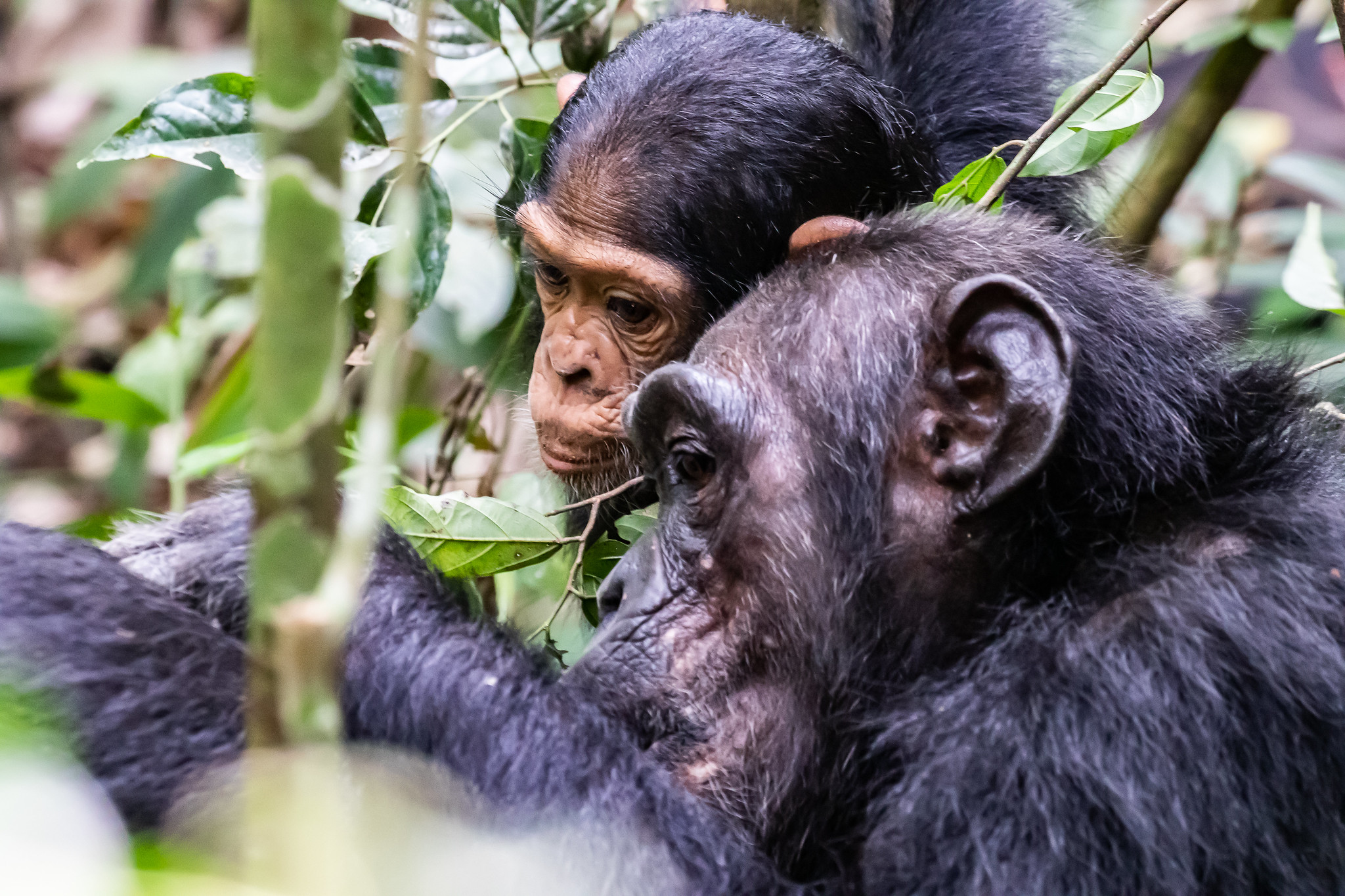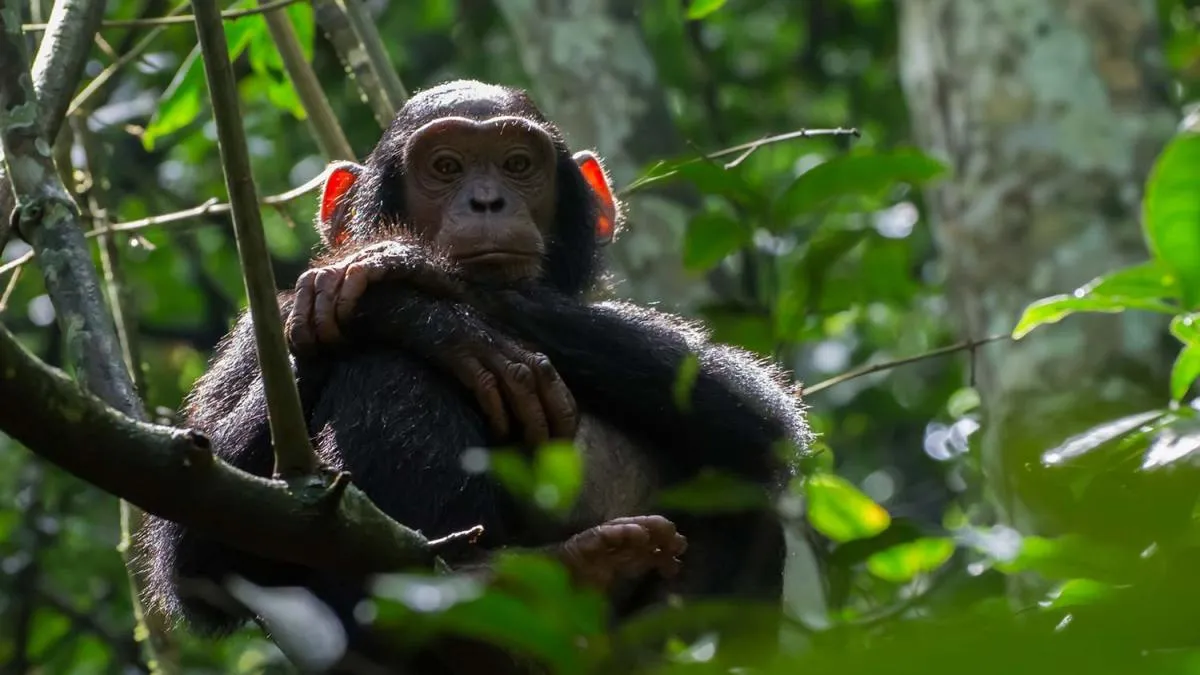10 Fun Facts about Chimpanzees
Chimpanzees are among the most fascinating creatures on Earth, exhibiting a striking resemblance to humans. Primarily located throughout Africa, these primates provide insight into the animal kingdom.

-
They reside in Africa.
Chimpanzees inhabit 21 African nations, ranging from Tanzania in the east to Senegal in the west. They reside in rainforests, woodlands, and savannas.
Four acknowledged sub-species of chimpanzee exist: eastern chimpanzee (P. troglodytes schweinfurthii in East Africa), western chimpanzee (P. troglodytes verus in West Africa), central chimpanzee (Pan troglodytes troglodytes in Cameroon and Congo), and Nigeria-Cameroon chimpanzee (P. troglodytes ellioti in Nigeria and Cameroon).
The chimpanzees in Tanzania are Eastern chimpanzees, the predominant subspecies of chimpanzee. They constitute an essential component of the environment, inhabiting safeguarded regions such as Gombe Stream and Mahale Mountains National Parks.
-
Chimpanzees are Our Nearest Relatives
Chimpanzees possess around 98% of their DNA in common with humans, establishing them as our nearest extant relatives within the animal kingdom. This genetic proximity results in numerous behavioral and biological parallels. Chimpanzees can convey many emotions, demonstrate empathy, and have indications of self-awareness, similar to humans. They possess the capacity to learn and adapt.
-
They possess considerable intelligence.
Chimpanzees rank among the most intelligent animals globally, with their cognitive capabilities being likened to those of human children. Chimpanzees exhibit problem-solving capabilities akin to those of human youngsters between the ages of 3 and 5 years. They possess the ability to resolve intricate problems, utilize instruments for food acquisition, and maneuver through social contexts. For example, chimpanzees are recognized for utilizing sticks to extract termites, employing boulders to break open nuts, and utilizing leaves as improvised sponges to absorb water from inaccessible locations. These acts necessitate comprehension of both the instrument and the issue at hand.
Chimpanzees have demonstrated a working memory akin to that of human toddlers. They can recall the positions of items and utilize this information to inform their decisions. This ability is manifest in both natural and experimental environments.
-
Chimpanzees Exhibit Remarkable Strength
Chimpanzees possess considerable strength. Chimpanzees possess a greater proportion of fast-twitch muscular fibers than humans, which enhances their strength. These fibers facilitate rapid, explosive strength, allowing chimpanzees to execute physically strenuous activities effortlessly. They are reported to possess strength around 1.5 to 2 times greater than that of a normal human.
An adult chimpanzee generally measures between 3 to 4.5 feet in height when bipedal and weighs from 88 to 130 pounds, with males exhibiting greater size than females. Their dimensions and dexterity are ideally adapted for their arboreal existence in the woodlands.
Chimpanzees are not just powerful but also remarkably swift. On land, they may attain velocities of up to 25 miles per hour. Chimpanzees are not innate swimmers and typically evade water. Their anatomical configuration, characterized by a more substantial upper body and shorter limbs, impedes their swimming ability. They also lack the inherent propensity or necessity to swim in their natural environments.
-
Chimpanzees Reside in Extensive Communities
Chimpanzee communities are intriguing. A community may consist of a maximum of 100 members, however they frequently divide into smaller factions for everyday activities such as harvesting or grooming. These primates exhibit a sophisticated social system, characterized by an alpha male at the helm of the group. The alpha male is not necessarily the most physically robust but frequently the most astute and adept at sustaining partnerships. These social dynamics are essential for the group’s stability and survival.
Chimpanzees employ a system of vocalizations, facial expressions, and body language for communication. They produce distinct noises for various circumstances — alarm calls for threats, soft grunts upon discovering food, and loud hoots for social interactions. These noises varied in pitch and intensity, communicating distinct meanings. Research indicates that chimpanzees are capable of acquiring sign language or symbols for communication with humans.
Chimpanzees display a diverse array of emotions, encompassing joy, wrath, grief, and empathy. They provide solace to one another during periods of pain, demonstrating a degree of emotional intelligence that is uncommon in the animal kingdom. Observations of chimpanzees grieving the loss of a group member or nurturing orphaned children underscore their ability for profound emotional bonds.
-
They Possess Numerous Competitors
Although typically gregarious creatures, chimpanzees may display lethal behavior towards conspecifics. Male chimpanzees are more frequently engaged in aggressive confrontations that may result in fatal consequences. These confrontations may transpire within their own group or with individuals from adjacent chimpanzee communities. Territorial disputes are prevalent causes of violent confrontations, as chimpanzees exhibit strong protective instincts toward their group’s area.
Chimpanzees encounter more formidable predators in their natural habitat. Within the deep vegetation of the African rainforest, leopards may ambush and subdue even the most formidable apes. A resolute leopard can significantly endanger adult chimpanzees and gorillas, although mostly targeting younger and more vulnerable members of ape groups. Lions in the savannah pose a considerable threat to chimpanzees that leave the forest canopy. In addition to these giant felines, chimpanzees are also endangered by other formidable predators such as crocodiles and pythons.
-
Chimpanzees Possess a Diverse Diet
Chimpanzees are omnivorous; however, their diet predominantly comprises plant-based items. They consume fruits, nuts, seeds, flowers, and leaves. Nevertheless, they occasionally hunt and consume meat, targeting smaller animals such as monkeys or bushbucks. Insects such as termites and ants constitute a portion of their diet. Their varied food contributes to seed distribution, facilitating forest regeneration.
-
They Experience an Extended Childhood
Chimpanzees experience an extended childhood, remaining in close proximity to their moms for approximately 7 years. During this period, they acquire fundamental life skills, including foraging for sustenance, constructing nests, and engaging in social interactions within the colony. This prolonged phase of education and growth is essential for their survival within the social framework of their societies.
-
Chimpanzees Construct Nests Each Evening
Every night, chimpanzees construct new nests for sleeping. Chimpanzees construct nests for various critical reasons, chiefly including safety, comfort, and health. These nests, frequently built high in the trees, function as their sleeping quarters. They construct nests by bending and intertwining branches and leaves, creating a pleasant and sturdy platform. They serve as a buffer against the rigid tree limbs, while the leaves offer further insulation, aiding in temperature regulation during the night.
-
Contributions of Jane Goodall
Dr. Jane Goodall’s study has been essential in enhancing our comprehension of chimpanzees. In the 1960s, she commenced her pioneering research at Gombe Stream National Park, Tanzania. Her observations transformed our understanding of chimpanzee behavior, particularly about their tool utilization, social interactions, and emotional intricacies.
Dr. Jane Goodall in Gombe Stream National Park
Regrettably, chimpanzees confront multiple challenges, chiefly attributable to human endeavors. Habitat destruction due to deforestation, illicit wildlife trafficking, and poaching poses substantial dangers to their survival. Pathologies such as Ebola also provide a threat to their communities. Conservation initiatives, particularly in nations such as Tanzania, are essential for safeguarding these majestic animals and their ecosystems.
Do Chimpanzees Assault Humans?
Chimpanzees are generally cautious of humans and typically evade interaction. The majority of wild chimpanzees will evade rather than confront humans. When in regions inhabited by wild chimpanzees, it is imperative for humans to uphold a respectful distance, adhere to protocols established by wildlife specialists, and refrain from actions that may be construed as threatening or intrusive to these creatures.
Chimpanzee assaults on humans are infrequent but may transpire. Similar to numerous wild animals, chimpanzees may exhibit aggression if they perceive a threat or provocation. Human intrusion into natural environments, through deforestation or hunting, might result in scenarios where chimpanzees feel threatened or endangered, potentially eliciting a violent response.
In certain locales, chimpanzees have acclimatized to human presence, particularly in locations visited by researchers or tourists. Habituation may foster peaceful coexistence, although it can also diminish chimpanzees’ innate dread of humans, potentially resulting in unpredictable interactions.
Concise Information on Chimpanzees
- Scientific designation: Pan troglodytes
- Common Designation: Chimpanzee
- Height: Approximately 3 to 4.5 feet when in an erect position
- Weight: 88 to 130 pounds (males often exhibit more mass)
- Life expectancy: 40 to 50 years in natural habitats
- Diet: Omnivorous (comprises fruits, nuts, seeds, foliage, insects, and sporadically small animals)
- Habitat: Rainforests, woods, and savannas of Central and West Africa
- Conservation Status: Critically Endangered


















